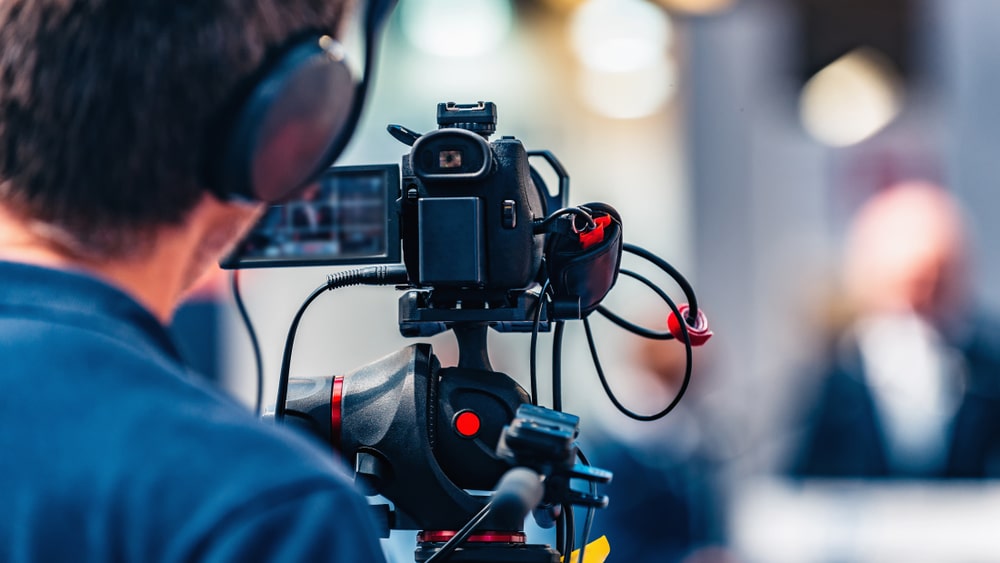Specialized Legal Videography for Legal Professionals.
The Duty of Lawful Videography in Depositions and Trials
Legal videography has actually emerged as an essential device in both depositions and trials, supplying a multifaceted technique to documenting witness statements. As legal experts increasingly acknowledge its worth, it prompts a much deeper examination of exactly how these visual records can affect juror perceptions and trial end results.

Value of Lawful Videography
Legal videography plays a critical duty in the documentation and presentation of depositions and tests. This customized field integrates technological abilities with legal understanding to produce a reliable record of procedures that can dramatically affect situation end results. The aesthetic aspect of legal videography improves the understanding of witness statement, permitting jurors and courts to observe not only the spoken words however likewise the temperament, emotions, and body language of the witnesses.
Additionally, legal videography provides an unbiased account of occasions, decreasing the possibility for false impression that can accompany composed transcripts alone. This visual documentation offers as a crucial device throughout trial presentations, facilitating a more clear and even more convincing narrative for both plaintiffs and offenders. The ability to replay video clip sections during court process allows legal groups to emphasize vital factors, reinforcing their debates successfully.
The significance of legal videography prolongs beyond the court room; it additionally plays an essential duty in maintaining proof for future recommendation, whether for charms or more lawful activity. Because of this, its integration right into the lawful process is important for making certain a fair and exact representation of the realities, eventually adding to the quest of justice.

Process of Legal Videography
While capturing the subtleties of depositions and tests, the procedure of legal videography includes a number of critical steps that make sure high-grade, accurate recordings. At first, a professional legal videographer prepares by examining the instance products and understanding the specific demands of the deposition or trial. This preparation includes familiarizing themselves with the participants and the context, which aids in capturing important information.
On the day of the recording, the videographer establishes up the needed devices, which commonly consists of high-def cams, microphones, and correct illumination. Making sure ideal angles and sound high quality is important, as it directly impacts the effectiveness of the recording. The videographer communicates with lawyers and individuals to develop procedures, guaranteeing that everyone understands the recording procedure.
Throughout the deposition or trial, the videographer meticulously records the process, paying very close attention to both verbal and non-verbal cues. This consists of recording the attitude and reactions of witnesses and attorneys. After the session ends, the videographer might edit the footage for quality and compliance with legal criteria, go to my site creating a final item that precisely reflects the process for future recommendation and use in lawful contexts.
Advantages in Depositions
The unification of videography in depositions supplies various benefits that improve the total process of gathering proof. One main benefit is the capacity to catch witness testimonies with aesthetic and auditory integrity, offering an extra precise depiction of the witness's attitude, tone, and body language. This multidimensional strategy allows lawyers and juries to analyze integrity much more properly than conventional written records alone.
Additionally, videographed depositions act as a powerful device for maintaining statement. Needs to a witness become inaccessible for trial, their taped deposition can be played in court, ensuring that their evidence stays accessible and relevant. This element considerably minimizes the risk of losing vital information that can influence case outcomes.

Lastly, videography boosts the overall professionalism and reliability of the deposition procedure, instilling confidence in clients pertaining to the thoroughness of their legal representation (legal videography). By leveraging innovation, legal experts can significantly improve the effectiveness of depositions
Impact on Tests
In lots of tests, the combination of videography can considerably influence the discussion of proof and the jury's perception. Lawful videography records witness statements and vital evidence in a dynamic layout, enabling jurors to engage with the product on several levels. This aesthetic element enhances the narration facet of a trial, providing context and psychological resonance that traditional text-based proof may do not have.
Additionally, video recordings can function as effective tools for impeachment throughout cross-examination. When disparities emerge between a witness's previous statements and their Click This Link court room statement, video proof provides an unbiased reference that can guide jurors' viewpoints. This immediacy and clarity can boost the trustworthiness of an event's narrative while concurrently weakening opposing arguments.

Future Trends in Legal Videography
As we look towards the future of lawful videography, a number of emerging patterns guarantee to reshape its function within the court. One considerable pattern is the integration of expert system (AI) in video analysis and editing. AI can streamline the procedure of recognizing vital minutes in taped depositions, enabling attorneys to rapidly access relevant web content, therefore boosting effectiveness in situation preparation.
Additionally, the surge of digital truth here (VR) and augmented fact (AR) modern technologies is expected to transform just how jurors experience proof. legal videography. By immersing jurors in a simulated setting, these technologies can offer a more extensive understanding of complicated scenarios, leading to even more informed considerations
Additionally, the enhancing demand for remote depositions, increased by the COVID-19 pandemic, will likely continue. Lawful videographers will need to adjust to new software program and platforms to ensure high-grade recordings in online settings.
Finally, the growing focus on data protection will demand stricter methods for keeping and sharing video clip evidence. As the lawful landscape evolves, lawful videographers must remain abreast of these trends to preserve their relevance and efficiency in the judicial procedure.
Conclusion
In summary, legal videography serves a vital feature in the judicial procedure, enhancing the integrity of depositions and trials. As innovation continues to progress, lawful videography is positioned to further transform its role within the legal landscape.